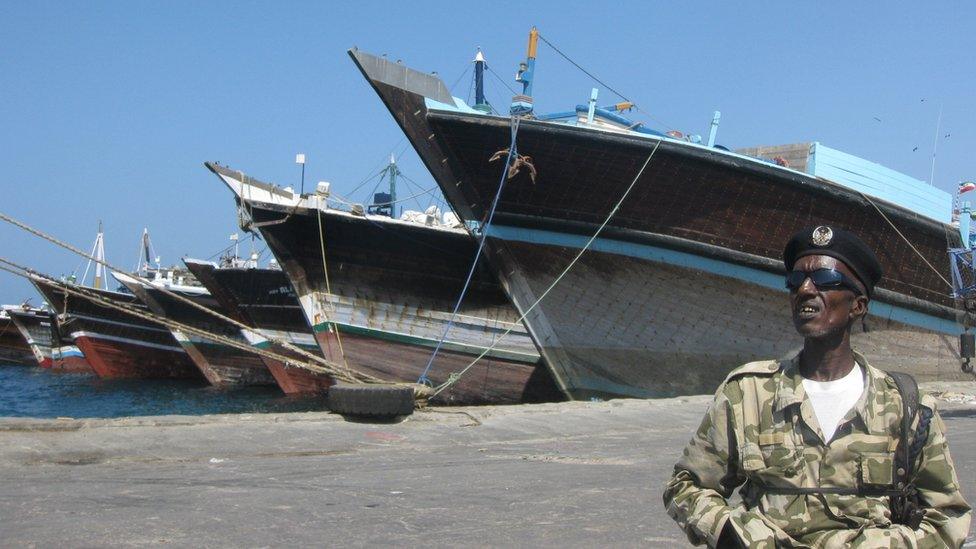Deported from the US to a Somali danger zone
- Published
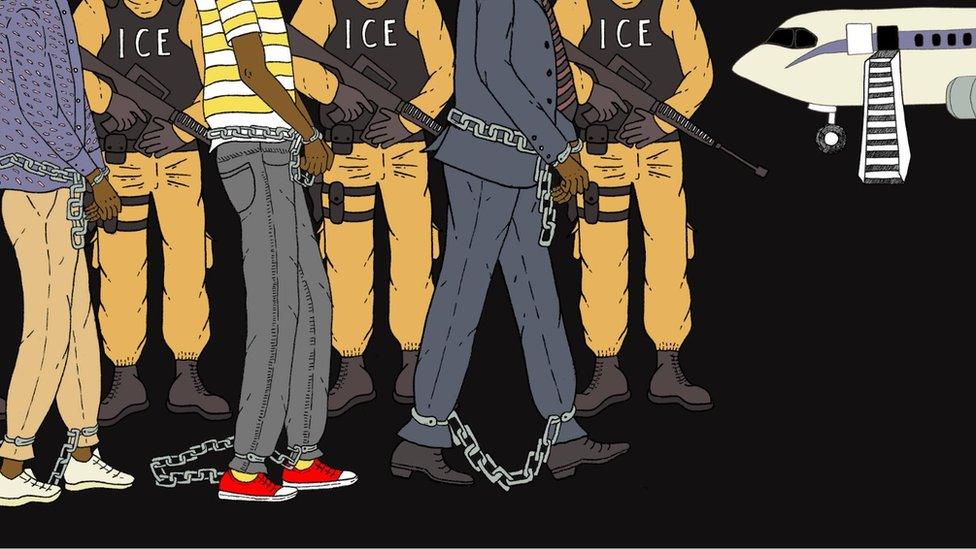
The sun was burning brightly when Ahmed arrived in Somalia's capital, Mogadishu, on a deportation flight from the US earlier this year. The tropical trees swayed slowly in the warm wind, oblivious to his anxiety and the torturous months that led to this moment.
It was a city this 32-year-old man had last seen as a 10-year-old boy.
"It was surreal. On the one hand: 'I am free'. But on the other: 'I am here,'" he says.
Released in March from immigration detention, where disease and threats were allegedly rife, he had been sent to a city ravaged by decades of civil war and terror.
He told me his story but asked for his real name to be withheld as he feared being targeted by the Islamist al-Shabab group because of his work warning young people in the US about the dangers of recruitment by Somali militants.
'TB contracted in detention'
Six months earlier, in a small town in Minnesota - which is home to the largest population of Somalis living in the US - it was dawn when Ahmed was driving his daughter to nursery.
He noticed a large vehicle with tinted windows beginning to follow him.
It seems officers from the Immigration and Customs Enforcement (Ice) had been watching him closely and, after getting him to pull over, he was shackled and taken into custody.
It was the start of a nightmare which would see him shifted between 10 detention centres in the US over the course of six months.
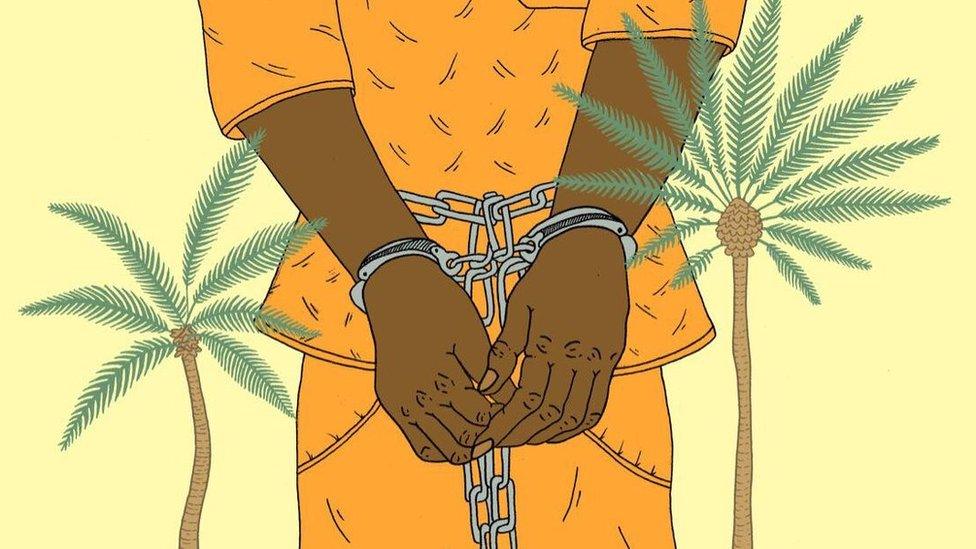
At some point, he caught active tuberculosis.
According to another deportee, who was sent back to the The Gambia in March, this is not unusual. One detention centre was even nicknamed the "TB unit" following an outbreak of the disease, he told me.
One guard reportedly admitted that his colleagues refused to work there.
Not that the officers appeared to have much sympathy for their captives, according to Ahmed.
"They mistreated us, they beat us up and they tortured us," he recalls.
Fellow Somali deportee Anwar Mohamed, 30, alleges they all experienced abuse: "Being maced with the gas. Being threatened to be killed.
"While we were shackled they were just throwing us against the wall and on the ground."
Ice says it takes all allegations of abuse very seriously, and has a zero-tolerance policy towards any such actions.
"Through an aggressive inspections programme, Ice ensures its facilities meet the required detention standards," Ice spokesman Brendan Raedy in response to the allegations about abuse and conditions in detention centres.
"Ice provides several levels of oversight in order to ensure that detainees in Ice custody reside in safe, secure and humane environments," he added, saying detainees could file grievances that would be independently reviewed.
Last December, Ice dismissed a report published by a US human rights group detailing allegations of physical, sexual and verbal abuse after a failed deportation flight to Somalia via Senegal, external as "categorically false".
Teenage conviction
So how did Ahmed, who arrived in the US as a refugee, end up back in the country he had successfully fled more than two decades before?
In short, a teenage conviction for selling drugs.
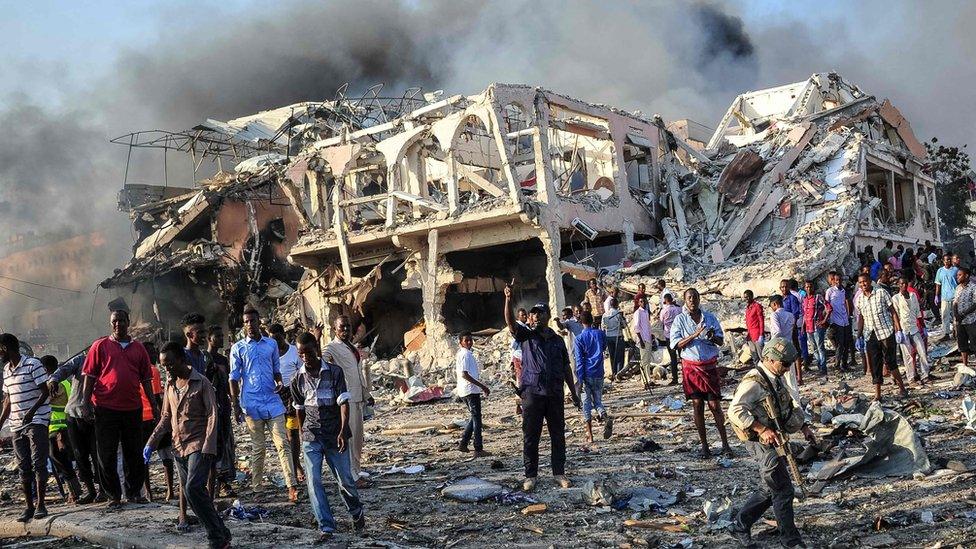
Mogadishu is still coming under assault, including a massive attack last October that left hundreds dead
Ahmed served three-and-a-half years behind bars - a period of time which, he says, allowed him to finish his high school diploma, take college courses and became a local imam.
But the worst was yet to come. Once he had finished his sentence, he was placed in immigration detention.
"Fifty days can feel like 50 years in there," he says.
So when they put a release form in front of him, he signed it. Later, he would discover it was in fact a deportation order, waiving his rights.
Ahmed, who had no passport or documents to prove he was Somali, was not the only one to make that mistake.
"Attorneys, Ice, even judges were telling Somalis: 'Don't fight your case, just sign your removal order, you'll never be sent back to Somalia,'" says immigration lawyer John Bruning.
At the time, it seemed the advice was accurate as the East African country was still engulfed in violence, and US officials appeared to be less willing to deport those who had committed more minor crimes.

More about Somalia:
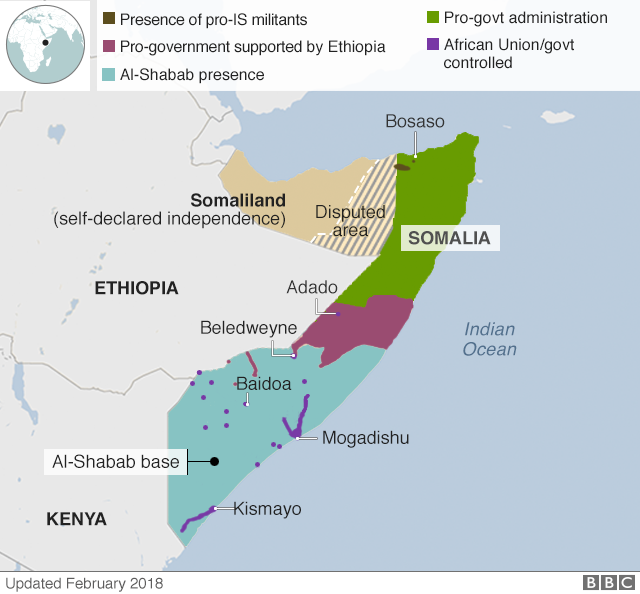

What is more, fighting the case would mean longer in the detention centre, says Mr Bruning.
"So a lot of people never fought their case, they just signed and gave up their rights, thinking that they would still be protected.
"Now we see that is not the case."
US President Donald Trump's administration has ramped up deportations, with federal data revealing the number of Somalis deported from the US rose to 528 in 2017 - almost triple that of 2016.
But that is only the start: there are plans to deport 4,000 Somalis, according to former Somali ambassador Ahmed Isse Awed, external.
Mr Bruning believes some people are even being moved to conservative states where the "judges are much more inclined to deny their claims".
He points to Somali asylum seekers being detained at the border in San Diego, California, but then moved to states with a "99% denial rate".
'Outsiders in danger'
That means there will be a lot more people like Ahmed, who says another flight with deportees from the US arrived in Somalia last week.
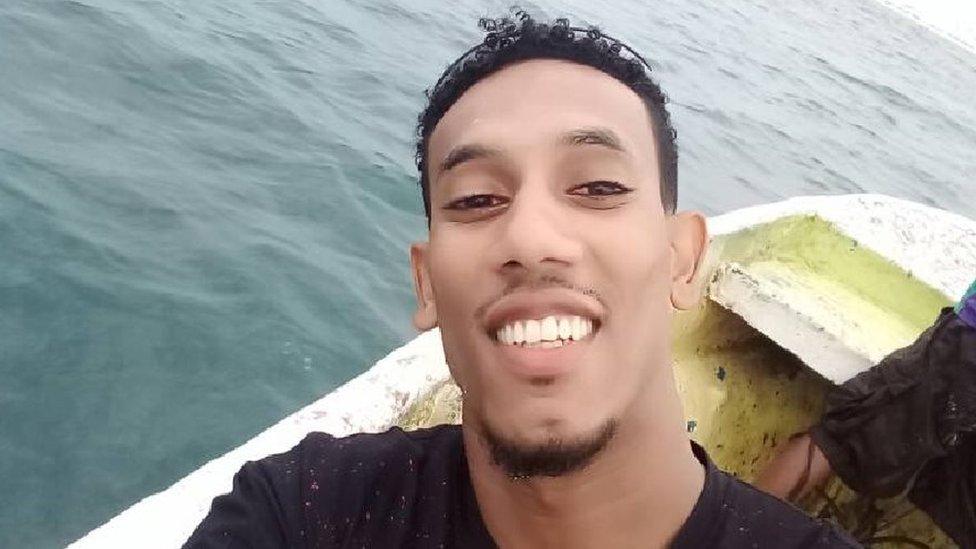
Anwar Mohamed was deported on the same flight as Ahmed
Immigration lawyer Malee Ketelsen explains that some have had their orders for a decade or longer.
During this time "they are getting married, having children, they're getting educated, they're contributing to US society and then, under the Trump administration, they've decided they have to go", she says.

More on US immigration:

Ahmed had started two non-profit organisations for young Somalis, aimed at preventing gang violence and Islamist extremism. He had married and had two children.
Now he is in Mogadishu, 8,200 miles (13,000km) away from his family, in a country which the US State Department says you should not travel to because of "crime, terrorism, and piracy".
Indeed Ice did not even provide a direct flight to Mogadishu - flying instead to neighbouring Kenya and transferring deportees to a private airline for the last leg of the trip. The Ice spokesman would not be drawn on whether this was due to safety concerns.
Mr Mohammed, also a child refugee, was deported after serving an eight-and-a-half year sentence for burglary.
He was initially grateful to have escaped two years in a detention centre but the reality of life in Mogadishu has now sunk in.
"Just the other day someone literally got killed in front of us. It's lawless out here," he says.
Ahmed says that the fact that they are seen as "outsiders" also puts them in even more danger.
"They think we are informants. They think we are spies. There is so much mistrust for us," he says.
- Published22 December 2017
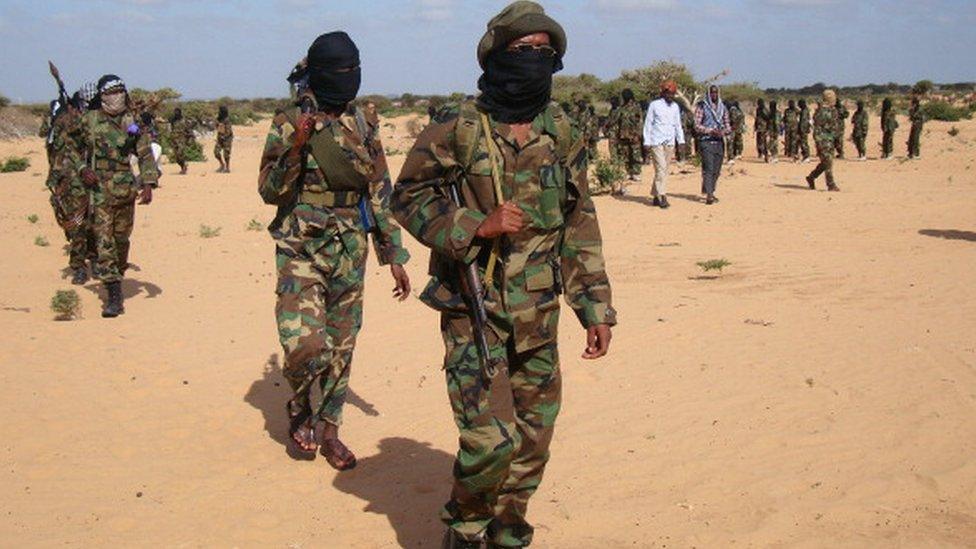
- Published11 July 2019
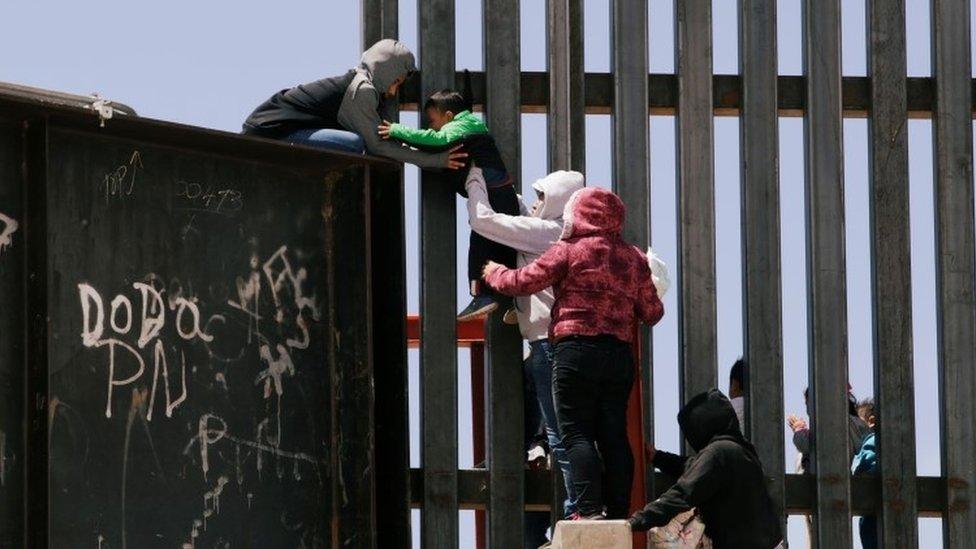
- Published18 May 2017
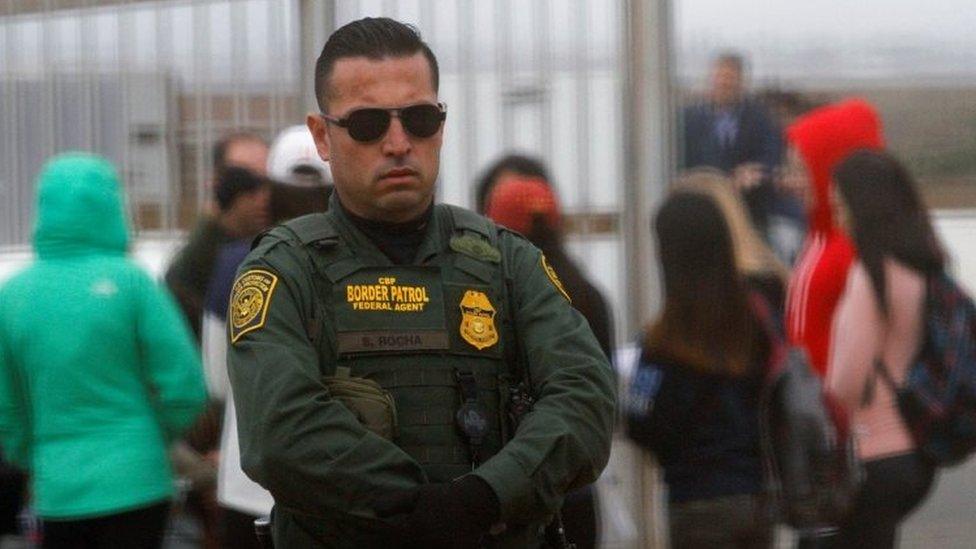
- Published23 June 2018
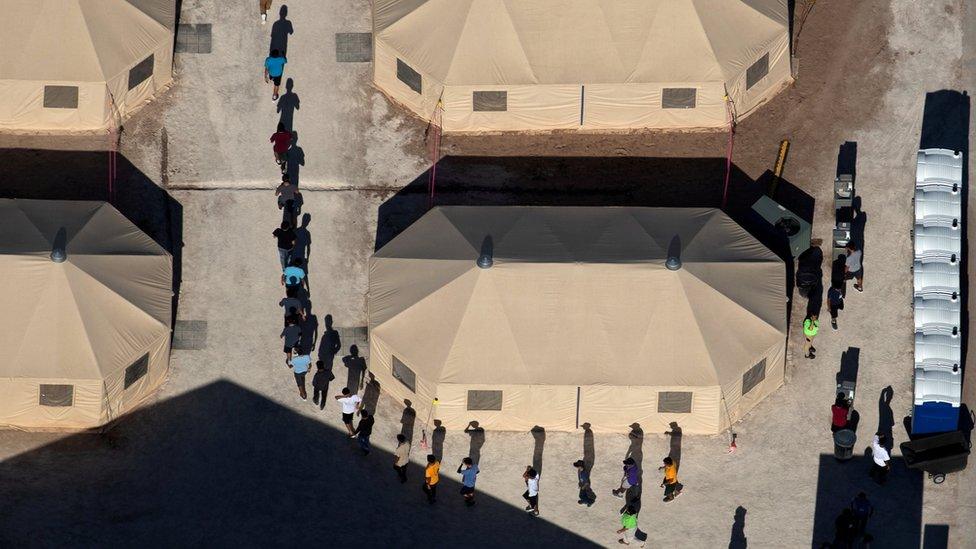
- Published8 April 2018
